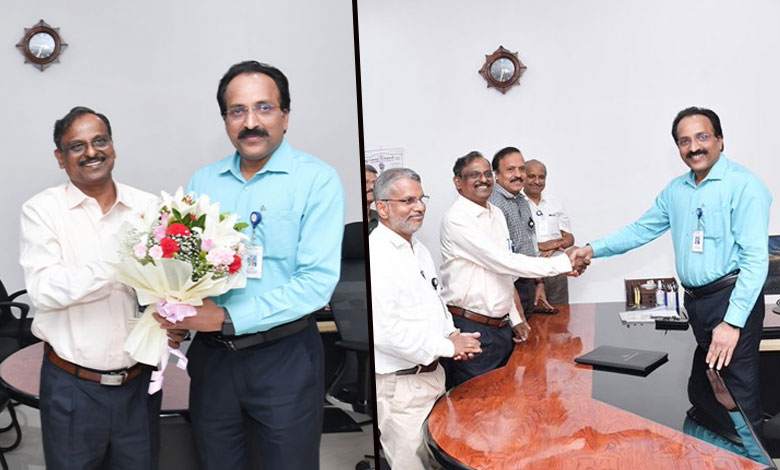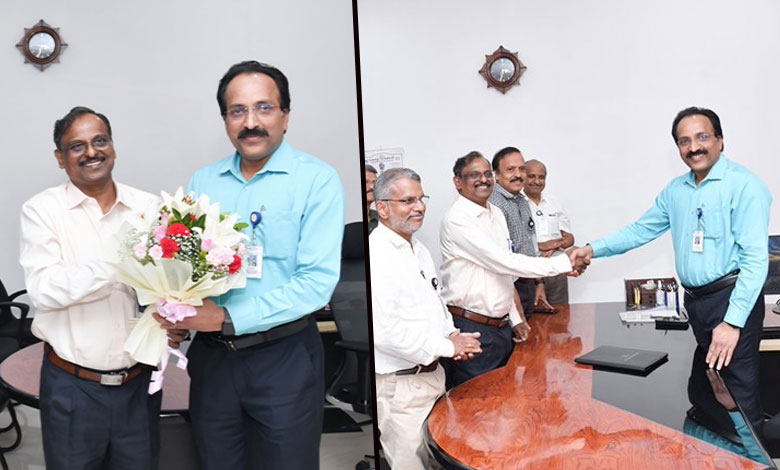V Narayanan Assumes Charge as New ISRO Chief, Succeeding S Somanath
In a statement, ISRO announced, "Dr V Narayanan, Distinguished Scientist (Apex Grade), assumed the charge of Secretary, Department of Space, Chairman, Space Commission and Chairman, ISRO on the afternoon of January 13, 2025."

Bengaluru: V Narayanan has officially taken over as the chairman of the Indian Space Research Organisation (ISRO), succeeding S Somanath.
Table of Contents
In a statement, ISRO announced, “Dr V Narayanan, Distinguished Scientist (Apex Grade), assumed the charge of Secretary, Department of Space, Chairman, Space Commission and Chairman, ISRO on the afternoon of January 13, 2025.”
Career and Contributions at ISRO
Prior to this appointment, Narayanan served as the Director of ISRO’s Liquid Propulsion Systems Centre (LPSC), a critical facility responsible for developing propulsion systems for launch vehicles and spacecraft. He also played a key role as the Chairman of the National Level Human Rated Certification Board (HRCB) for the Gaganyaan programme, India’s ambitious human spaceflight mission.

Joining ISRO in 1984, Narayanan has made significant contributions to India’s space missions over the past four decades. His tenure as Director of LPSC, beginning in January 2018, solidified his reputation as a leader in rocket and spacecraft propulsion technologies.
Educational Background and Early Career
Narayanan comes from a humble background and is an alumnus of IIT Kharagpur, where he completed his M.Tech in Cryogenic Engineering and PhD in Aerospace Engineering. He was awarded the Silver Medal for securing the first rank in his M.Tech programme and received the Distinguished Alumni Award in 2018 and the Life Fellowship Award in 2023 from IIT Kharagpur.

Before joining ISRO, Narayanan briefly worked at TI Diamond Chain Ltd., Madras Rubber Factory, and Bharat Heavy Electricals Limited (BHEL) at Trichy and Ranipet.
Pioneering Contributions to India’s Space Programme
During his 40-year tenure at ISRO, Narayanan led the development of indigenous cryogenic technology for the GSLV Mk-II vehicle when India was denied access to this technology. He designed engine systems, developed necessary software tools, established infrastructure and test facilities, and completed the Cryogenic Upper Stage (CUS), making it operational.
As the project director of the C25 cryogenic project for the LVM3 vehicle, he led the development of the C25 cryogenic stage powered by a 20-tonne thrust engine, which was crucial for LVM3’s successful maiden launch. His academic work during his M.Tech and PhD studies directly contributed to the development of these systems, positioning India among the six countries with indigenous cryogenic technology.

Key Roles in Lunar and Solar Missions
Narayanan played a vital role in India’s lunar missions, Chandrayaan-2 and Chandrayaan-3, by leading the development of the L110 Liquid Stage, the C25 Cryogenic Stage, and propulsion systems that enabled successful Moon orbits and soft landings.
For the PSLV C57/Aditya L1 mission, he oversaw the realization of the second and fourth stages, control power plants, and the propulsion system, helping position the spacecraft in a halo orbit at L1. This achievement made India the fourth country to successfully study the Sun.
Also Read: Karnataka Police Take Caller into Custody After Threat to Attack VVIPs on Republic Day
Leadership in the Gaganyaan Programme and Advanced Propulsion Systems
Narayanan has been instrumental in advancing the Gaganyaan programme by contributing to the human-rating of the LVM3 vehicle and developing systems like cryogenic stages, life support systems, and propulsion systems for the crew and service modules. As Chairman of the Gaganyaan Certification Board, he managed the certification process for multiple systems.
Under his leadership, ISRO has developed next-generation propulsion systems, including a 200-tonne thrust LOX-Kerosene semi-cryogenic rocket system, a 110-tonne thrust LOX-Methane engine, and electric and green propulsion systems for spacecraft.

Future Missions and Recognitions
Narayanan has also guided propulsion systems for upcoming missions such as the Venus Orbiter, Chandrayaan-4, and the Bharatiya Antariksha Station (BAS). He is a Fellow of several esteemed organizations, including the Indian National Academy of Engineering, the Aeronautical Society of India, and the Astronautical Society of India.
